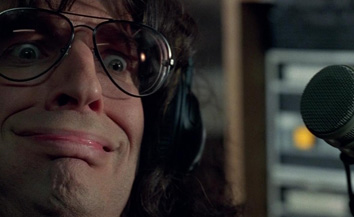|
|
The Number One Movie in America: Private PartsBy Sean CollierSeptember 7, 2019
A stranglehold that only Howard Stern could break. Private Parts doesn’t exactly hold up in 2019. The film traces the ascendance of the notorious DJ from his early years through his mid-’80s dominance of the New York market, with a special focus on Stern’s attempts to keep his marriage to then-wife Alison afloat. (Much of the film is about how their love endured Stern’s controversial reputation; it would only continue to do so for another two years, as the couple separated in 1999.) Director Betty Thomas does manage to tease some lovely moments out of the relationship; unfortunately, the story is not framed as an unlikely romance, but instead is presented as Stern bemoaning his lack of public respect. At the time, he was worth hundreds of millions and was easily the most powerful man in radio. I’d argue that even in 1997, Howard Stern was sufficiently understood. I’m sure that Private Parts, which did receive mostly positive reviews, landed better in its day. At this point, however, its attempts at shock feel tired — try keeping up with Deadpool, ’90s Howard — and much of what was then simply crass reads as purely discriminatory through a modern lens. I’m sure fans will enjoy going back to Private Parts, and there are some genuinely funny moments, but it’s nothing for casual viewers to bother with. Apparently, that much was true back in ’97. Stern’s fans showed up in droves in the first few frames, but the film dipped down the charts in a hurry; the film’s domestic gross only totaled about $41 million, and Private Parts is not among the 50 highest earners of the year. While Stern himself is going strong, the film is more of a footnote than a triumph. Still, though, that footnote includes tossing Luke Skywalker off his throne. Pretty impressive. Private Parts is the subject of the latest episode of The Number One Movie in America, a look back at past box-office champions. Each episode’s film is drawn at random from a list of every number-one movie since 1982. Please listen and subscribe! For a few minutes, anyway.
[ View other Number One Movie in America articles ]
[ View other columns by Sean Collier ]
[ Email this column ]
|

|
|
|

|
Friday, November 1, 2024
© 2024 Box Office Prophets, a division of One Of Us, Inc.


